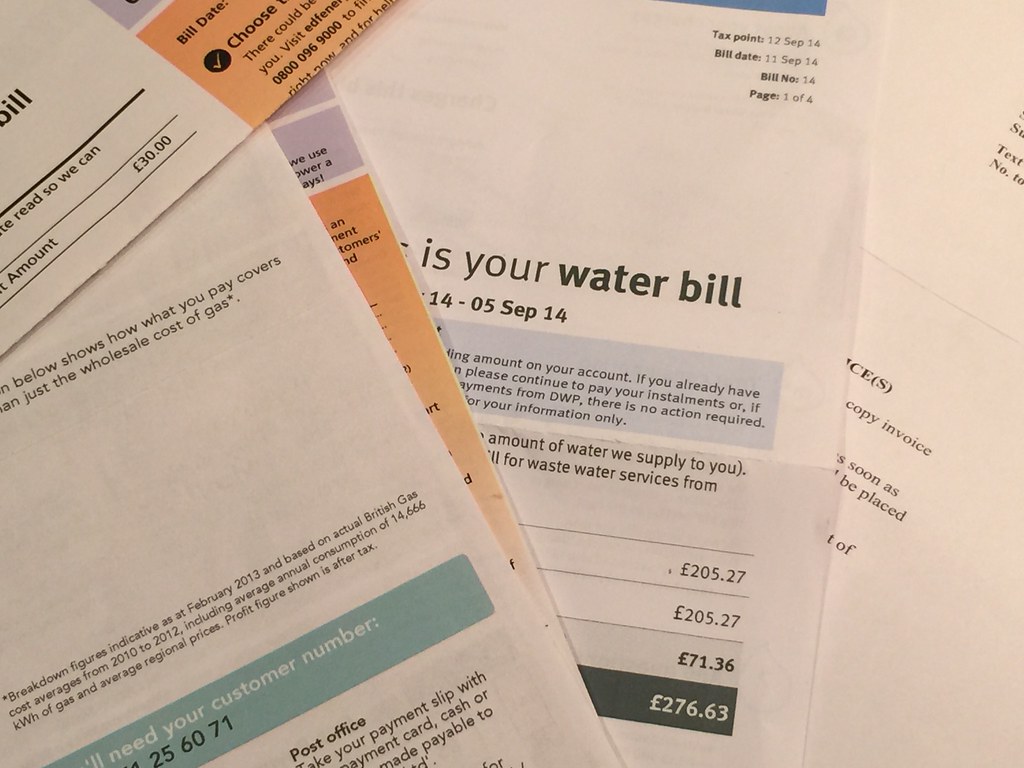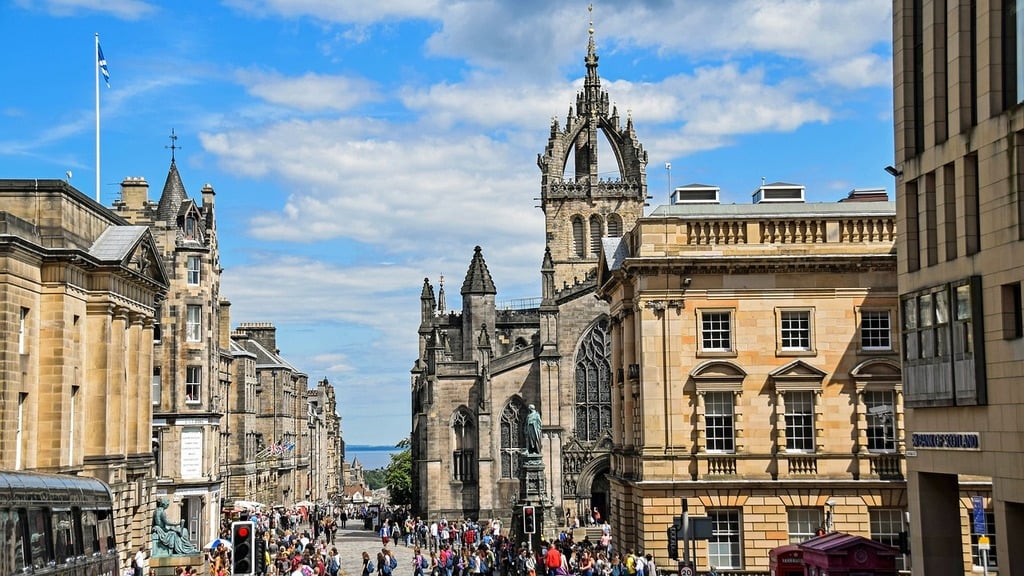Before buying or renting a place to live, you might have set your budget on the house price or monthly rent. However, the money you will spend on utilities can also stack up, which most people tend to ignore. Read on with us to get to know what are utilities, how much is the cost, and ways to save money.
What Are Utilities?
Utilities are essential services or infrastructure that are basic for the normal functioning of everyday life. Common types of utilities include electricity, water, and gas, which are necessary to make a place livable. Others like sewage, trash, Internet, cable, and phone are usually also regarded as utilities.
Public or private companies provide utilities to help a house, business, and community work smoothly, and the government might regulate them because utilities are essential. For example, electricity is for lighting, heating, and appliances, while water is necessary for drinking and cleaning.
Public Utilities vs. Private Service Providers
Not all “utilities” are created equal, especially regarding regulation and market competition. Understanding the distinction helps you manage costs and choose providers in deregulated states.
Public Utilities (Regulated Infrastructure): These are essential, monopolistic services often regulated by local or state governments to ensure fair pricing and universal access. Examples: Water, Sewage, sometimes Electricity and Natural Gas (especially transmission/delivery).
Private Service Providers (Competitive Market): These services are typically offered by private companies operating in a competitive market. Prices are set by the market, not usually regulated by public utility commissions. Examples: Internet, Cable TV, Mobile Phone Service, and often the supply of Electricity or Natural Gas (in states with energy choice).
Types of Utilities
There are several different types of utilities according to the service they offer, and most of them are crucial for a comfortable living. Here is a detailed breakdown of the major types of utilities that you will see in your bills:
- Electricity
Electricity is one of the fundamental utilities that powers lighting, appliances, heating, cooling, and technology. Usually, heating will be the largest expense during cold times and cooling in warm seasons. A local electric company like AEP, Ecel Energy, and EEL will usually be responsible for providing electricity and charging for it.
- Water
Water is another indispensable utility for drinking, cleaning, and sanitation. Local water companies like American Water Works, Essential Utilities, and California Water Service Group will provide water for your home. Utility bills for water tend to be stable according to personal lifestyle, and you need to check whether there is somewhere leaking when it soars.
- Gas
Natural gas is a utility that is used for heating, cooking, powering appliances, and industrial processes. It is usually cheaper than electricity and can help you save money on utility bills, but electricity tends to be safer. Your local natural gas company, maybe BP, EQT, or Antero Resources, will offer access and charge your utility bill.
Others that are usually considered as utilities:
- Sewage: Sewage or wastewater is the liquid or solid material that goes down the drain or toilet. The treatment and disposal of wastewater is also on your utility bills and is often paid to the same water utility or a city service. Your sewer bills are based on the actual usage of water.
- Trash and Recycling: Waste management is another part that will also appear on your utility bills. Most households hire a collection service and take their trash to the curb. You can expect a cost from $20 per month to $80, depending greatly on where you live as well as the size of your containers, the local competition, and other factors.
- Internet: The Internet is extremely essential in today’s modern world. In America, the average Internet bill is around $60 per month, and there are several different plans provided by Internet service providers (ISPs) to meet your needs.
- Cable TV: For watching TV, you need to pay a utility bill for cable, satellite, or streaming. Each of them has different advantages and will usually cost around or over $100 per month.
- Phone: Phone service, specially mobile phones, is also crucial nowadays. The average American spends $157 per month on a cell phone plan with a primary carrier.
Utilities for Apartment, Home, and Business
Utilities for an apartment, a house, and a business are similar in some of the most common types, but differ in responsibility, cost structures, usage demands, and infrastructure needs.
What Are Utilities in an Apartment?
Apartment utilities include electricity, heating, water, gas, trash, and security. Who is responsible for paying the utility bill is usually made clear in the lease. Usually, tenants will pay for electricity, gas, and internet, but many landlords may cover water, trash, and sewage.
If you’re going to rent an apartment, make sure who will pay the utilities bills or what utilities are included in the rent before signing the contract. Ask in advance about the average bills for major utilities to better manage your budget.
What Are Utilities in a House or Home?
If you’re going to purchase a house, the utilities you will pay in the future will cover not only electricity, gas, and water, but also others like yard maintenance. The cost is usually high due to square footage and a lack of shared infrastructure.
Home utilities are similar to apartment utilities, but there is a major difference in who pays the utility bills. The houseowner will be responsible for pay utilities for a house, the bill is ofen spilt between the tenant and landlord for an apartment.
What Are Utilities in a Business?
Business owners or tenants pay all utilities unless negotiated in a commercial lease. Unlike apartments and houses, they use high-capacity systems and dedicated telecom lines, and the cost is usually higher than residential, based on commercial rates.
Apart from major utilities, they also need to pay for more industry-specific utilities like heavy machinery power, compressed air, and water for cooling in factories.
Commercial utilities differ significantly from residential services in three main areas:
Usage & Tariffs: Businesses, especially manufacturing or industrial operations, consume vastly more energy and water. They are subject to Commercial Tariffs, which often feature Demand Charges (based on the peak rate of power usage) that are far more complex and expensive than simple residential consumption rates.
Specific Needs: Beyond standard electricity and water, businesses require specialized utilities like high-capacity cooling systems, dedicated high-speed fiber internet, and specialized waste disposal (e.g., hazardous waste).
Responsibility: In commercial leases (e.g., Triple Net Lease or NNN), the tenant is almost always responsible for all utility costs, building maintenance, and property taxes, making utility planning critical for operating expenses.
How Much Are Utilities per Month?
After getting to know what is utility, another important question is how much does it cost? Utility bills, usually including electricity, gas, water, sewer, phone, internet, and streaming or cable TV services, can cost significantly more than you can imagine.
Average Utility Bill in an Apartment
The average apartment renter can expect to pay $150-$200 monthly in utility bills covering heating, cooling costs, and electricity, according to Energy.gov. Most landlords include water and refuse in the rent, and tenants will also be responsible for optional utilities like cable, TV, and Internet. Here is a brief breakdown of an apartment average utility cost:
| Utility Type | Cost per Month |
|---|---|
| Electricity | $40-$70 |
| Air Conditioning | $35-$60 |
| Heating | $50-$65 |
| Cable and Internet | $75-$180 |
| Trash and Recycling | $20-$30 |
| Water | $40-$60 |
| Renter Insurance | $15-$25 |
Average Utility Bill in a Home
For a house owner in the USA, the average cost of utilities is $500 to $600 per month or $6,000 to $7,200 per year, which can vary greatly according to your location, home, and household size, individual utility usage, and your home’s efficiency. Here is a brief breakdown:
| Utility Type | Cost per Month |
|---|---|
| Electricity | $115 – $160 |
| Natural Gas | $35 – $200 |
| Water | $40 – $60 |
| Sewer | $60 – $90 |
| Trash & Recycling | $25 – $100 |
| Phone | $115 – $125 |
| Internet | $55 – $95 |
| Cable TV | $30 – $100 |
| Treaming Services | $25 – $60 |
Budgeting & Splitting Bills: Essential Tips for Roommates
When living with roommates, figuring out how to manage and pay the utility bills can be a major source of conflict. Be sure to clarify the exact method of splitting bills in advance.
Here are the 3 most common methods for splitting utility bills in shared living:
Equal Split (Simple): The total monthly bill is divided equally among all residents. This is the simplest method but may feel unfair if one person uses significantly more resources (e.g., works from home, takes long showers).
Usage-Based Split (Fairer): For utilities like electricity and gas, costs may be split based on individual factors, such as the size of each resident’s room or if a specific appliance (like a personal mini-fridge) contributes significantly to the usage. Requires tracking or clear agreement.
Flat Rate Split (Predictable): Roommates agree to pay a fixed, predetermined amount (e.g., $75/month) for a utility, regardless of the actual usage. This provides budget predictability but can penalize the person whose name is on the account if actual usage spikes.
Pro Tip: Need a quick estimate for a new area? Websites like Numbeo.com or the EIA (U.S. Energy Information Administration) can provide utility cost averages for your city or state to help you establish a preliminary budget.
Utility Bills vs. Rent: What Does "Utilities Included" Really Mean?
When viewing rental properties, “Utilities Included” can sound like a major saving, but the term is rarely all-encompassing. It simply means the landlord or property management company is responsible for paying the bills to the utility providers.
Crucially, what is included varies widely. Always check the lease agreement for specifics.
| Typically Included | Often Excluded (Tenant Responsibility) |
|---|---|
| Water (Cold/Hot) | Electricity (Powering lights, appliances, AC) |
| Sewage/Waste Disposal | Natural Gas (For heating or cooking) |
| Trash/Recycling Collection | Internet & Cable TV |
| Heat (If centrally controlled) | Personal Hot Water (If unit has individual heater) |
The Critical Catch: Usage Caps
Even when a utility is “included,” many landlords impose a “usage cap” (e.g., $100/month for electricity). If your consumption exceeds this cap due to high usage (such as running the AC constantly), you, the tenant, will be responsible for the overage. Always clarify the exact cap amount and the charge per unit overage before signing the lease.
Understanding Your Utility Bill: Components and Financial Uses
A utility bill is more than just a request for payment; it’s a statement of service and a vital personal document.
Key Components of Your Bill:
Service Period & Meter Reading: Dates covered and the units of service consumed (e.g., kWh for electricity, CCF/therms for gas).
Supply Charge vs. Delivery Charge: Supply is the cost of the actual energy/water consumed. Delivery (or transmission) is the fee the local utility charges for maintaining the lines, pipes, and infrastructure to bring the utility to your home.
Fixed vs. Variable Rates: Understanding if you are paying a constant rate (Fixed) or a rate that fluctuates based on the market (Variable) is crucial for budgeting.
Financial Use: Proof of Residency
Utility bills are commonly accepted as Proof of Residency when opening bank accounts, applying for driver’s licenses, or registering children for school, provided your name and address are printed on the bill.
How to Lower Your Utilitiy Bills
Does the cost of utility bills surprise you? Are you troubled by how to lower your utility bill? In fact, there are some simple steps to change your usage habits and save you a lot of money:
- Unplug: Unplugging devices that are not in sure can save average $100 per year, since standby power accounts for 5% to 10% of home energy use.
- Use energy-efficient Appliances: Change your old light bulbs to LED bulbs, which are up to 90% more efficient than incandescent bulbs.
- Keep a reasonable temperature: Heating and cooling are the biggest parts of utility bills. You can save up to 10% per year on energy bills by lowering the temperature by 7 to 10 degrees from its normal setting per day in the winter and raising it by the same amount in the summer.
- Reinforce your windows: Old windows and doors may leak cooled or heated air and let the outside air in, so your appliances need to work overtime to compensate. Replacing double-pane or triple-pane windows will cut your energy bills as well as reduce noise.
- Take shorter showers: Cutting off the time you shower will be useful to save 2 to 4 gallons per minute, leading to a smaller water bill and gas or electric bill.
- Use low-flow toilets and shower heads: Products with the WaterSense label will save at least 20% of water compared to normal ones.
- Collect your water: For the water you use to wash your hands, you can collect it and then use it for cleaning tasks, like mopping, flushing the toilet, or watering your plants.
- Use green energy: Solar energy is not only green, but also budget-friendly, which can help you save a lot on your electric bill.
Beyond Daily Habits: Long-Term Efficiency and Sustainability
While daily habits are important, significant, long-term savings come from improving your home’s infrastructure and choosing efficient sources.
Energy Audits: Consider hiring a professional or using online tools to conduct a home energy audit. This pinpoints exact areas of inefficiency (e.g., insufficient attic insulation, duct leaks) that lead to major energy waste.
Smart Home Integration: Installing smart thermostats (like Nest or Ecobee) and smart power strips can automatically optimize heating/cooling schedules and cut “vampire power” consumption, yielding substantial savings over time.
Renewable Energy Consideration: Explore options for installing solar panels or purchasing electricity plans with a high percentage of Renewable Energy Certificates (RECs). While the upfront cost is higher, the long-term saving potential and reduced environmental impact are significant.
Find Your Place to Live With uhomes.com
Looking for a perfect housing or apartment in the United States that you can call home? uhomes.com is a professional and dedicated team that helps you with a wide range of accommodation options, verified listings, and exclusive offers. Many of our accommodations include utility fees, covering your water, electricity, and sewer fees to ensure your life is hassle-free.
Whether you’re looking for a student apartment for the whole semester, or short stays for a couple of weeks, whether you prefer upscale amenities and luxury experience, or aim for affordability, we get you covered. Speak to us about your needs, and let us do all the hard work!

Final Thoughts
Utilities are often overlooked when looking for an apartment or a house, but will usually be significant when you need to pay the bills. For renters, it is suggested to ask for the average utility bills for the apartment you’re looking for, and make sure what utilities are included in the rent and what you need to pay before booking. It may sound tedious sometimes, but it will always help a lot.
We hope this guide on what are utilities, together with related costs and tips, will be informative for you to find the next place to live. Always be cautious and careful when looking for your future home.
FAQs
What are examples of utilities?
Utilities are essential services providing infrastructure for daily needs. Examples include electricity (powering homes/industries), natural gas (heating/cooking), water supply and sewage systems, trash collection and recycling services, and telecommunications like landline, cellular, and internet.
What are utility bills?
Utility bills are recurring payments for essential services like electricity, water, natural gas, sewage, trash/recycling collection, and telecommunications (internet/phone). Costs vary by consumption and location.
Are utilities included in the rent?
In the U.S., utilities may be included in rent depending on the lease. Commonly covered are water, trash, or sewage, while tenants often pay electricity, gas, and internet. Inclusion varies by landlord, property type (e.g., apartments vs. houses), and location. Always review lease terms to clarify responsibility.
What does it mean when utilities are not included?
When utilities are not included, it means that your utility fees are not included in your rent and you need to pay utility bills apart from your rent.
How much are utilities per month?
The average cost of utilities in the USA for renting an apartment is $150-$200 per month, and $500-$600 per month for a houseowner, usually including electricity, gas, water, sewer, phone, internet, and streaming or cable TV services.
How can I lower utility bills?
To lower your utility bills, you can:
- Unplugging devices that are not in use.
- Use energy-efficient Appliances like LED bulbs.
- Keep reasonable temperatur.
- Reinforce your windows.
- Take shorter shower.
- Use low-flow toilets and shower heads.
- Collect your water reuse for cleaning tasks.
- Use green energy like Solar energy.
What should I do if I can't pay my utility bill?
Do not ignore it. Contact your utility provider immediately. Many companies offer payment extensions, budget billing plans, or can direct you to state-funded assistance programs or local non-profit organizations that offer temporary financial aid.
What is the difference between a public utility and a service provider?
Public utilities (such as water and sewers) provide basic infrastructure and are usually strictly regulated by the government. Service providers (such as the Internet, cable television, or certain electricity/gas providers) operate in a competitive market, and their prices are determined by the market. Public utilities usually have monopolistic management rights.







